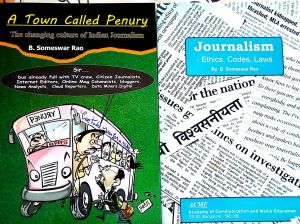
OUTRAGE, IN INDIA, is not followed by action.
Scores of readers criticised the Patel community (Patidars) for raising ₹150 crores in just three hours, to erect one more community temple in Gujarat’s Ahmedabad city. And Patels, who own most of the motels in the USA, have huge properties abroad and are a dominant community, are fighting for reservations and a backward tag.
The Congress is backing the agitation just to embarrass Narendra Modi as he is from Gujarat.
It prompted my blog calling for a moratorium on building of new temples, churches and mosques till the country has a society where no one goes hungry, there are no more homeless people and no one dies for lack of medical aid.
Iskcon (International Society for Krishna Consciousness) popularly known as Hare Krishna movement, has built Krishna temples all over India and abroad costing millions of rupees each. Every one of them is a tourist attraction and has thousands visiting them every day.
Having a large number of foreigners as devotees, Iscon has also started an organisation, Akshaya Patra, which has huge facilities with machines to cook hygeienically food for lakhs of school children.
A recent post (picture above) said the government has asked the Hare Krishna movement to feed the poor at centres run by the Greater Hyderabad Municipal Corporation.
Bangalore Iskcon Akshaya Patra has been such a resounding success that the government almost handed over the school mid-day meal scheme to it.
Akshaya Patra has scores of vehicles transporting the meals to the schools with departures so timed as to ensure hot food reaches the children in time, irrespective of their religion or caste. Watching the scheme run smoothly is a great experience.
There are temples in India which get cores of rupees as offerings. Why not make it compulsory for them to spend most of it for providing shelter for the homeless, free meals for the hungry and world-class medical facilities? Or build rural schools or toilets?
Tirupati is reputed to have crossed the Vatican in its wealth. Puttaparthi Satya Sai Baba Prshantinilayam too has huge resources. True Tirumala Tirupati Devasthanam (TTD) and the Satya Sai Ashram have some welfare schemes, especially the latter which runs some excellent hospitals and educational institutions. But a major part of the wealth of TTD and other temples gies to rituals and spreading religion.
Money pours into temples, but little comes in for building schools or poor homes.
Churches receive huge funding from prosperous Western countries and mosques from Islamic countries like Saudi Arabia – but only for converting more people to their religions. To suit their ends they have also back politics in states like Kerala.
Proselitising may be their compulsion and their present methods are better than than crusades and inquisition of Christianity and Islam’s Jehad against kaafirs, but at least Hinduism, with no such goals, should live up to its slogan that Manava seva (service of humans) is the same as Madhava seva (service of God).
On the other hand, Hindu godmen have amassed more wealth and got involved in more criminal cases than any corrupt politician,businessman or official.
It is unfortunate that the present BJP-led coalition has to depend on fringe elements in Hinduism which believe in Santana Dharma and ritualism. The groups will oppose a government bid to make temples spend for the poor as other religions are not subjected to such restrictions.
They should learn from Sikhs whose Gurudwaras run langars which feed all. And they should remember that it was C. Rajagopalacari (CR as he was known) heading Madras presidency, which included all southern states, and not a BJP government, which brought all big Hindu temples under the government’s endowments department in South India.
What is needed is political will


